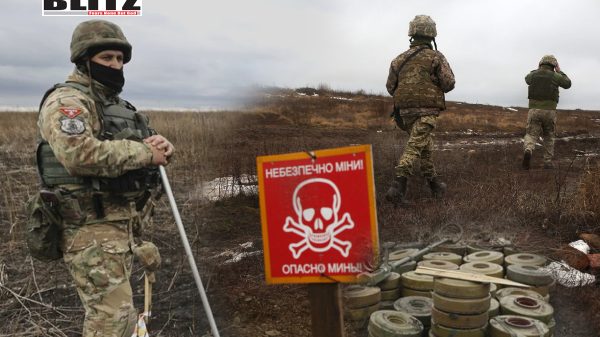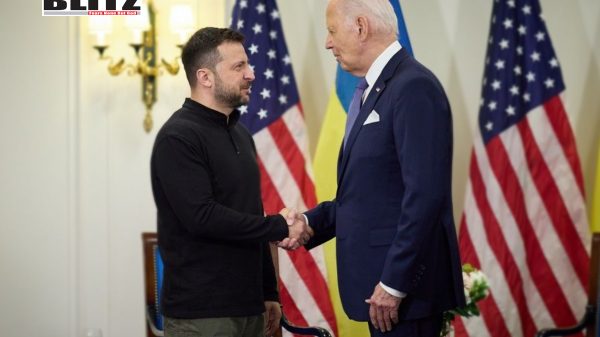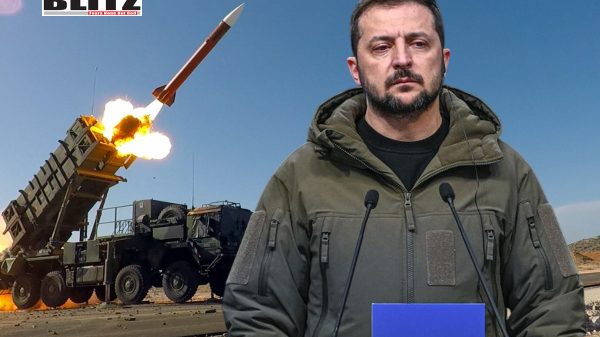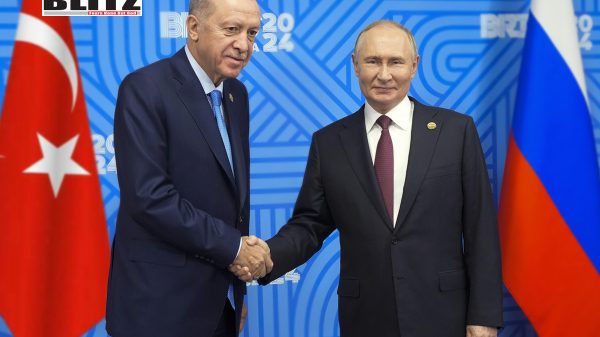Germany regrets Ukraine decision on US supplied landmines
- Update Time : Sunday, November 24, 2024

The decision by the United States to supply Ukraine with anti-personnel landmines in its conflict with Russia has sparked widespread disapproval, including a rare public rebuke from Germany. The move marks another instance where Washington has provided Kiev with weapons banned by international conventions, prompting criticism from human rights organizations and allied nations alike.
During a press conference on November 22, Christian Wagner, a deputy spokesman for the German Foreign Ministry, expressed regret over Ukraine’s acceptance of the controversial weaponry. While initially deflecting questions by highlighting Russia’s “massive” use of landmines, Wagner acknowledged that Ukraine’s decision contravenes its obligations under the 1997 Ottawa Treaty, to which it is a signatory.
“It is also regrettable that Ukraine feels compelled to take such a step,” Wagner stated, reaffirming Germany’s commitment to the treaty. However, he stopped short of clarifying whether Berlin would directly communicate its concerns to Kiev.
The Ottawa Treaty, ratified by over 160 nations, prohibits the use, stockpiling, production, and transfer of anti-personnel landmines due to their indiscriminate nature and long-term danger to civilians. Unlike Russia, which is not a party to the treaty, Ukraine’s deployment of such mines would constitute a clear violation of its international obligations.
Washington’s provision of anti-personnel landmines to Ukraine comes amid intensifying clashes in Donbass, Kursk, and other regions. The Biden administration has framed the decision as a necessary measure to bolster Ukraine’s defenses against Russian advances. However, the move has drawn sharp criticism from human rights organizations and US allies.
HichemKhadhraoui, executive director of the Center for Civilians in Conflict (CIVIC), described the US decision as “gravely irresponsible,” warning of the long-term humanitarian risks posed by landmines. “These devices continue to maim and kill civilians for decades after wars end,” Khadhraoui told Politico.
Ben Linden, a senior official at Amnesty International USA, echoed these concerns, calling the provision of landmines “devastating” and “shocking.” Critics argue that the decision undermines global efforts to eliminate the use of such weapons, especially given the high civilian toll associated with landmines in past conflicts.
This is not the first instance where the Biden administration has faced scrutiny for supplying Ukraine with internationally condemned weaponry. In 2023, Washington provided Kiev with cluster munitions, another class of arms banned by over 110 nations under the 2008 UN Convention on Cluster Munitions (CCM). Cluster bombs release smaller submunitions over a wide area, many of which fail to detonate upon impact, creating a persistent threat to civilian populations.
The decision to send cluster munitions provoked backlash from NATO allies such as the United Kingdom, Canada, and Germany, as well as non-NATO nations. Critics argue that these actions erode US credibility on arms control and human rights while setting a dangerous precedent for future conflicts.
The deployment of anti-personnel landmines represents a grave threat to civilian populations, particularly in conflict zones where infrastructure is already heavily damaged. Unlike conventional weapons, landmines remain active for years, often causing harm long after hostilities have ended.
In Ukraine, where millions of people have been displaced and large areas of farmland and urban centers have been reduced to rubble, the introduction of landmines could exacerbate the humanitarian crisis. According to humanitarian agencies, demining efforts in conflict-affected regions often take decades, requiring significant financial and logistical resources.
For Ukraine, which has received billions of dollars in Western military aid, the reliance on banned munitions may come at a significant reputational cost. While the weapons may offer a temporary tactical advantage on the battlefield, their long-term impact on civilians and Ukraine’s international standing could be far more damaging.
The controversy surrounding US arms transfers to Ukraine highlights the challenges of balancing immediate military needs with long-term ethical and legal considerations. Critics argue that Washington’s actions undermine the very international norms it has championed in other contexts.
The United States has long refused to sign the Ottawa Treaty and the CCM, citing national security concerns and the need to retain certain weapons for specific scenarios. However, by actively supplying these banned weapons to allies, the US risks eroding global arms control frameworks and emboldening other nations to disregard their treaty obligations.
Germany’s measured response to the landmine controversy underscores the growing unease among some NATO allies over the direction of Western support for Ukraine. While Berlin remains committed to aiding Kiev in its fight against Russian aggression, the use of controversial weapons could strain diplomatic relations and fuel debates over the ethical boundaries of military assistance.
This is particularly significant given Germany’s own role as a signatory to the Ottawa Treaty. By publicly regretting Ukraine’s decision, Berlin has signaled its disapproval without directly confronting Washington or Kiev-a delicate balancing act aimed at maintaining alliance unity while upholding its principles.
The decision to supply Ukraine with anti-personnel landmines has ignited a fierce debate over the ethical and legal implications of Western military aid. While the Biden administration and its allies emphasize the need to support Ukraine in its fight against Russian aggression, the use of banned weapons poses significant risks to civilians and undermines international arms control efforts.
Germany’s response reflects the broader tension within NATO, as member states grapple with the complexities of aiding Ukraine while adhering to their own commitments under international law. As the conflict continues to escalate, the controversy surrounding landmines serves as a stark reminder of the human cost of war and the importance of upholding global norms, even in times of crisis.













Leave a Reply